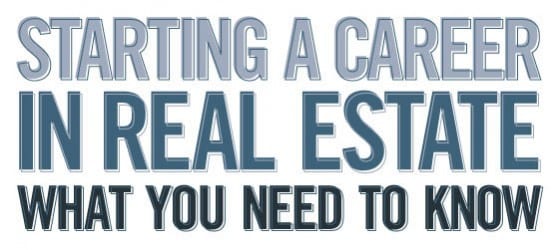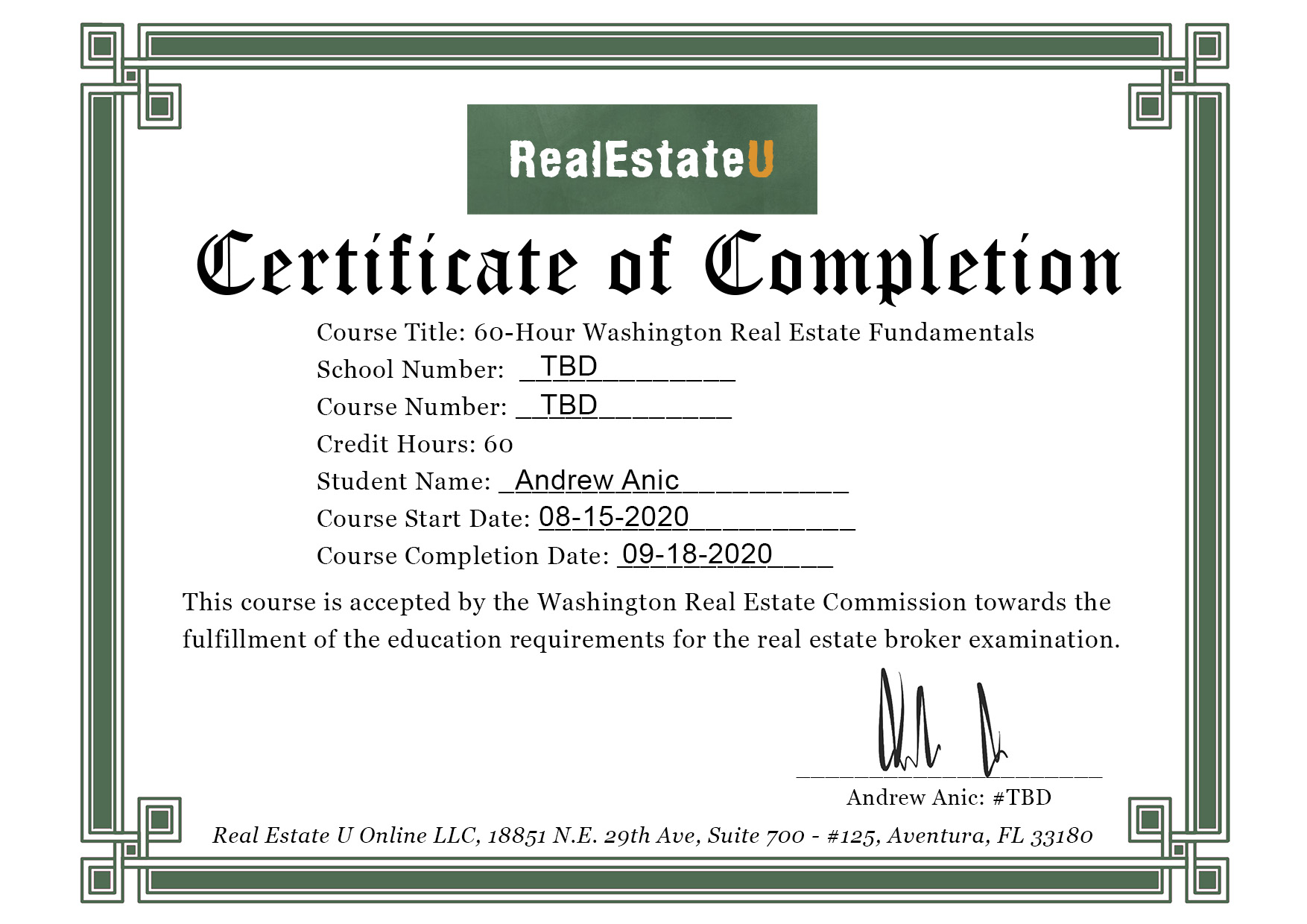
It can be a rewarding and exciting career choice, but you will need to invest a lot of time, effort, and money. To be successful, you must have a clear set of objectives and motivation to keep you focused on your business goals.
You can start your own real estate brokerage, whether you are a novice or seasoned professional. Follow these five simple steps.
1. Find the Right Brokerage
Selecting the right brokerage firm is the first step to opening a realty brokerage. Choose a company with a good track record that is well-known in your region. You should also look for a brokerage who shares your ethics and values.

2. Budget Your Budget
In order to start a brokerage business, you will need to create a plan of financial projections that includes initial expenses as well as revenue. This will help you determine if the business will be profitable and how much capital you need to start it up.
You can use this budget to determine how many sales agents you will need and how many deals each agent must close to break-even or turn a profit. You can then start to search for financing in order to launch your brokerage.
3. The Best People for Work
If you plan to hire people to work at your brokerage, interview them carefully prior to deciding whether or not to add them to your team. Make sure that they are qualified and have the skills and experience you require. Also, make sure that their culture fits with yours.
4. Create a Great Work Culture
A strong team culture can have a positive impact on your business and the quality of service you provide to clients. This can also be a way to retain your most loyal and motivated staff.
5. Pay your agents well
You can attract and retain the best real estate agents by paying them well. You can choose from several options, such as a low or no desk fee for seasoned professionals, standard commission splits, and commission shares.

6. Branding Your Business is Important
An effective website and presence on social media are the best ways to promote your brokerage. Online presence is essential for attracting customers and finding new leads.
7. Investing in Transaction Management Software
It is important to have a real estate transaction system in place for your business. These systems automate every step of the process, allowing all parties to remain on track.
8. You can now start hiring after obtaining your license
The first step in starting your own realty firm is to get your own license as a broker. So, take the time and research the requirements of your state. The state requirements are different, but usually include a series of classes and an exam.
FAQ
How much money do I need to purchase my home?
It all depends on several factors, including the condition of your home as well as how long it has been listed on the market. The average selling price for a home in the US is $203,000, according to Zillow.com. This
How much money do I need to save before buying a home?
It depends on the length of your stay. Start saving now if your goal is to remain there for at least five more years. But if you are planning to move after just two years, then you don't have to worry too much about it.
What are the pros and cons of a fixed-rate loan?
With a fixed-rate mortgage, you lock in the interest rate for the life of the loan. This guarantees that your interest rate will not rise. Fixed-rate loan payments have lower interest rates because they are fixed for a certain term.
How can I tell if my house has value?
If you have an asking price that's too low, it could be because your home isn't priced correctly. You may not get enough interest in the home if your asking price is lower than the market value. Get our free Home Value Report and learn more about the market.
Statistics
- When it came to buying a home in 2015, experts predicted that mortgage rates would surpass five percent, yet interest rates remained below four percent. (fortunebuilders.com)
- This means that all of your housing-related expenses each month do not exceed 43% of your monthly income. (fortunebuilders.com)
- It's possible to get approved for an FHA loan with a credit score as low as 580 and a down payment of 3.5% or a credit score as low as 500 and a 10% down payment.5 Specialty mortgage loans are loans that don't fit into the conventional or FHA loan categories. (investopedia.com)
- This seems to be a more popular trend as the U.S. Census Bureau reports the homeownership rate was around 65% last year. (fortunebuilders.com)
- Some experts hypothesize that rates will hit five percent by the second half of 2018, but there has been no official confirmation one way or the other. (fortunebuilders.com)
External Links
How To
How to Manage a Property Rental
While renting your home can make you extra money, there are many things that you should think about before making the decision. We'll show you what to consider when deciding whether to rent your home and give you tips on managing a rental property.
Here are the basics to help you start thinking about renting out a home.
-
What do I need to consider first? Before you decide if your house should be rented out, you need to examine your finances. If you have debts, such as credit card bills or mortgage payments, you may not be able to afford to pay someone else to live in your home while you're away. It is also important to review your budget. If you don't have enough money for your monthly expenses (rental, utilities, and insurance), it may be worth looking into your options. It might not be worth the effort.
-
What is the cost of renting my house? Many factors go into calculating the amount you could charge for letting your home. These factors include the location, size and condition of your home, as well as season. Remember that prices can vary depending on where your live so you shouldn't expect to receive the same rate anywhere. Rightmove reports that the average monthly market price to rent a one-bedroom flat is around PS1,400. This means that you could earn about PS2,800 annually if you rent your entire home. While this isn't bad, if only you wanted to rent out a small portion of your house, you could make much more.
-
Is this worth it? It's always risky to try something new. But if it gives you extra income, why not? You need to be clear about what you're signing before you do anything. Renting your home won't just mean spending more time away from your family; you'll also need to keep up with maintenance costs, pay for repairs and keep the place clean. These are important issues to consider before you sign up.
-
Are there any benefits? It's clear that renting out your home is expensive. But, you want to look at the potential benefits. There are many reasons to rent your home. You can use it to pay off debt, buy a holiday, save for a rainy-day, or simply to have a break. It's more fun than working every day, regardless of what you choose. And if you plan ahead, you could even turn to rent into a full-time job.
-
How do I find tenants Once you decide that you want to rent out your property, it is important to properly market it. Start by listing online using websites like Zoopla and Rightmove. Once potential tenants reach out to you, schedule an interview. This will help to assess their suitability for your home and confirm that they are financially stable.
-
How do I ensure I am covered? If you're worried about leaving your home empty, you'll need to ensure you're fully protected against damage, theft, or fire. You'll need to insure your home, which you can do either through your landlord or directly with an insurer. Your landlord will often require you to add them to your policy as an additional insured. This means that they'll pay for damages to your property while you're not there. If your landlord is not registered with UK insurers, or you are living abroad, this policy doesn't apply. In these cases, you'll need an international insurer to register.
-
It's easy to feel that you don't have the time or money to look for tenants. This is especially true if you work from home. You must put your best foot forward when advertising property. Post ads online and create a professional-looking site. Additionally, you'll need to fill out an application and provide references. While some people prefer to handle everything themselves, others hire agents who can take care of most of the legwork. It doesn't matter what you do, you will need to be ready for questions during interviews.
-
What should I do after I have found my tenant? If you have a current lease in place you'll need inform your tenant about changes, such moving dates. You can negotiate details such as the deposit and length of stay. It's important to remember that while you may get paid once the tenancy is complete, you still need to pay for things like utilities, so don't forget to factor this into your budget.
-
How do you collect the rent? When the time comes for you to collect the rent you need to make sure that your tenant has been paying their rent. You will need to remind your tenant of their obligations if they don't pay. After sending them a final statement, you can deduct any outstanding rent payments. You can call the police if you are having trouble getting hold of your tenant. If there is a breach of contract they won't usually evict the tenant, but they can issue an arrest warrant.
-
How do I avoid problems? While renting out your home can be lucrative, it's important to keep yourself safe. Make sure you have carbon monoxide detectors installed and security cameras installed. You should also check that your neighbors' permissions allow you to leave your property unlocked at night and that you have adequate insurance. Do not let strangers in your home, even though they may be moving in next to you.